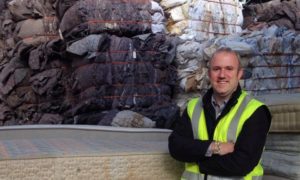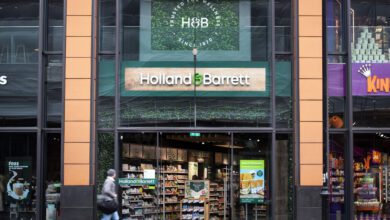The Impact of the Latte Levy

In January this year, a cross-party committee of MPs produced a report on disposable packaging, with the focus on coffee cups. The report called for a 25p charge on disposable hot drink cups to be implemented, nicknamed the ‘latte levy’, with the tax helping to fund improvements in the cups so they can be recycled.
With only 0.25% of coffee cups being recycled at the moment, the committee called for a target date of 2023 to be set by which time all cups should be able to be recycled, and if the UK is unable to meet this, for non-recyclable cups to be banned altogether.
There’s no denying the coffee industry is huge in the UK. One in five Brits visit a coffee shop every day, and there are 1,992 Costa Coffee stores in the UK.
There is a misconception surrounding the recyclability of these disposable coffee cups, with a number of coffee companies claiming on the packaging that they’re recyclable, leading to many consumers believing they are actually recycled.
However, they are lined with a plastic polyethylene, which is used to make the cups waterproof, and they are contaminated with drink, so they are actually very difficult to recycle as they cannot be recycled at standard recycling plants. They instead have to be taken to special facilities, of which there are only three in the UK.
Much like single-use coffee cups, furniture and particularly mattresses are also very difficult to recycle. But, unlike single-use coffee cups, they pose a much larger issue in the long term. Disposable paper cups such as those in Starbucks and Pret a Manger, will biodegrade over time, whereas mattresses won’t.
Due to the bulky nature and difficulties in transporting mattresses in large quantities, figures show that much like single-use coffee cups, only a small percentage of mattresses are recycled responsibly in the UK, with 7.5 million discarded to landfill sites – which is usually the cheapest and quickest option.
However, from a government perspective, it seems they have singled out the coffee industry, not only as it is an easy win to target big corporations who garner little sympathy, but they also know 80% of the market can be captured with only 10 of these companies. This leads me to wonder whether the government are looking at this from a genuine recycling perspective, or a mere-money making perspective.
While it’s great that the government are looking more and more at how waste can be reduced and how our so-called ‘throwaway society’ can be tackled, the mattress and furniture industry is an area that is continually overlooked and its problem hugely underestimated.
With statistics by YouGov predicting that 30% of people would stop using single-use coffee cups if the charge was implemented, the ‘latte levy’ is the type of tax which needs to be applied to soft furnishings and mattresses.
Over seven million mattresses go to landfill each year in the UK, which is enough to fill Wembley Stadium five times over! UK mattress manufacturing generates 440,000t C02e in greenhouse gas emissions each year. If 50% of mattresses were made up of recycled material, C02 emissions would be reduced by 34% and 85,000 tonnes of raw materials would be saved.
With a national shortage of landfill capacity, and UK landfill sites closing at a much faster rate than expected, the UK is reaching crisis point, and discussions around mattress recycling urgently need to be had.
After the public discussion of the ‘latte levy’, a number of coffee shops have since taken action, including large chains such as Costa and Starbucks, either setting their own charges on top of drink prices, or offering discounts for customers who bring their own reusable cups.
These schemes are essentially producer responsibility, but instead of the organisations facing the cost and responsibility, it will be members of the public who will have to bear the full brunt of the charge.
While it is a consumer’s responsibility too, surely the onus should be on manufacturers, who need to be educated about the importance of considering the end-of-life of products right from the design stages. Currently manufacturers of coffee cups only pay 10% towards the disposal of the product at its end-of-life, with the taxpaying public footing 90% of the bill.
The government needs to implement legally enforceable producer responsibility schemes for all areas of waste. This will force designers and manufacturers into considering what will happen to goods at the end of their useful life, designing products with this in mind, so that the end of a product’s life is merely the start of a new one.
The UK’s throwaway culture is a problem which desperately needs tackling. Although the implementation of a ‘latte levy’ would be another step in the right direction, much like the previous introduction of a carrier bag charge, there still needs to be a greater focus at government level on creating a genuine circular economy, with a products end-of-life a core consideration throughout its lifespan.

Nick Oettinger is the managing director at The Furniture Recycling Group. Nick has previously worked as the managing director of a specialist construction company before moving into the waste and recycling industry.









